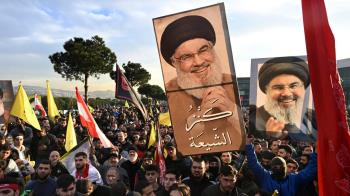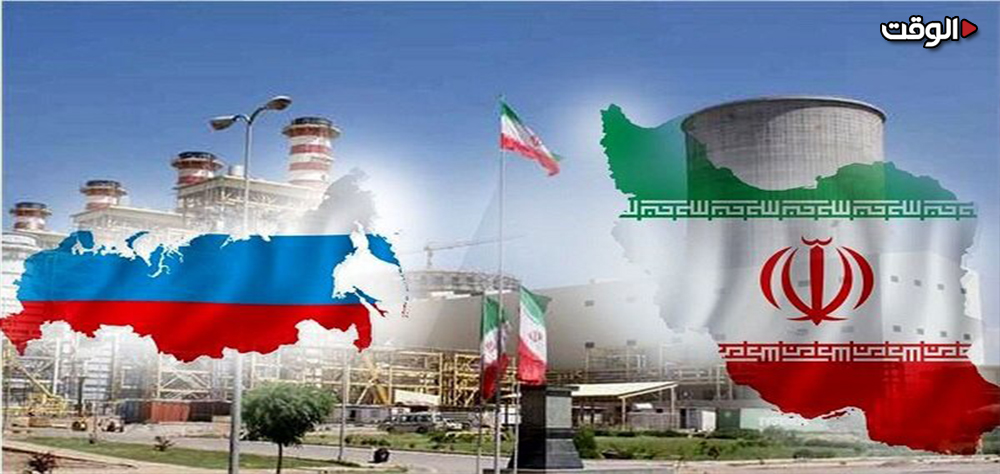Alwaght- With the start of Ukraine war, the role of the energy resources in geopolitical competitions tangibly increased. While the US weaponizes sanctions and dollar domination to bring the Russian economy to its knees, Moscow in response has tried to use its energy resources as a pressure tool against the West. It seems that this economic confrontation has paved the way for reviving one of the ambitious but shelved joint Iranian-Russian projects.
In this relation, last week, Russian state gas company Gazprom and National Iranian Oil Company (NIOC) signed an MoU with the presence of Iranian Oil Minister Javad Owji for direct transfer of Russian gas to Iran, projecting a revolution for regional energy and industry outlook.
Simon Watkins, a trader and journalist, in a piece published by Oil Price website said: "This MoU and the others that preceded it can be seen as a major stepping stone to enabling the two countries to implement their long-held plan to be the core participants in a global cartel for gas suppliers in the same mold as the Organization of the Petroleum Exporting Countries (OPEC) for oil suppliers."
The new MoU between Russia and Iran rests on the solid foundation of the Forum of Gas Exporting Countries, which became an official Doha-based organization on December 23, 2008, during the 7th meeting of oil and energy ministers in Moscow. In addition to Russia, Iran and Qatar, Algeria, Bolivia, Egypt, Equatorial Guinea, Libya, Nigeria, Trinidad and Tobago, and Venezuela are also present in this energy bloc.
Russia, Iran and Qatar together have nearly 60 percent of the world's gas reserves, with Russia in first place with about 1,688 trillion cubic feet and Iran in second place with about 1,200 trillion cubic feet. This bloc collectively controls about 71 percent of global gas supply, 44 percent of market production, 53 percent of gas pipelines, and 57 percent of LNG exports.
The latest MoU between Gazprom and Iran and the previous 2022 contract between the two sides show that the Russian-Iranian alliance tries as much as possible to control the two key elements in the global demand including offshore gas transfer through pipelines and LNG transfer using tankers to export destinations.
In this connection, Hamid Hosseini, the official representative of Iran's Oil, Gas and Petrochemical Products Exporters Union, announced in a statement after the signing the MoU that "the Russians have now come to the conclusion that gas consumption in the world will increase and the trend of LNG consumption has increased and they alone are not able to meet the global demand. Therefore, there is no more room for gas competition between Russia and Iran. The winner of the war between Russia and Ukraine is the US and will take over the European market. If Iran and Russia can work together to reduce the influence of the US in the oil, gas and commodity markets, it will benefit both countries."
Iranian-Russian partnership in gas supply
In order to advance the gas OPEC project, Iran and Russia have introduced joint projects within the framework of the 2022 agreement. One of them is Gazprom's assistance to the National Iranian Oil Company in the development of Kish and North Pars gas fields worth $10 billion aiming to produce more than 10 million cubic meters of gas per day from these fields.
Second, Gazprom's assistance to a $15 billion project to increase gas production in South Pars gas field on the Iranian-Qatari gas border.
Third, Gazprom's assistance for completion of several LNG projects, in North Pars and then South Pars and also construction of gas pipelines.
And the fourth is related to Russian efforts to encourage other West Asian gas powers to join the push for gradual establishment of gas OPEC.
“Gas is widely seen as the optimal product in the global transition from fossil fuels to renewable energy, so controlling as much of it as possible will be the key to energy-based power over the next ten to twenty years, just as it was for Russia in Europe with its gas and oil supplies before the Ukraine invasion,” a senior source who works closely with Iran’s Petroleum Ministry exclusively told OilPrice.com recently.
It is noteworthy that after start of Ukraine war that led to cut-off of Russian oil and gas to Europe, the US siezed the opportunity and met part of the needs of its European allies with its gas with a price four times higher than global prices.Therefore, Russia and Iran are trying to take control of the global markets by partnership in the field of energy, and at a time Europe is grappling with an energy crisis, they use this leverage to reduce the effect of sanctions, and in the meantime, they count on energy-rich countries in the region and the world. The role of energy in the Ukraine war was well evident, as after the Russian operations the oil prices rallied, sending up a flare among the Western leaders.
If the gas suppliers stop their exports for a short period of time, the Westerners will suffer more than others, and the tough winter of Europe in 2023 bears witness to this reality.
Gas transfer to Europe via North-South Corridor
Although Iran and Russia cannot directly export their gas to Europe, arrangements have been made to export these rich resources to other regions of the world through intermediaries.
According to Oil Price, the start of regular gas transfer from Russia to Iran is related to Tehran's proposal to Moscow on May 11 to create a wider "energy corridor" from Russia to the Persian Gulf. This, in turn, is consistent with Turkey's May 12 announcement, in which it stated that Ankara is interested in buying more gas and oil from Iran and mulling the possibility of transiting the hydrocarbons to Eastern Europe.
Iran and Russia pursue goals from this gas partnership. First, Russia would be able to circumvent many of the current Western restrictions by adopting Iran's proven sanctions-busting mechanisms for gas and oil sales whether to Turkey, to Southern and Eastern Europe, and through Iraq to the rest of the world.
Also, the construction of network of new transport corridors from Russia to Iran and then to Turkey or the Mediterranean ports in Syria is also consistent with China's Road and Belt Initiative (RBI). In this regard, last June saw high-level meetings between Iraqi and Chinese officials to finalize the next phase of an extensive cooperation plan. The 2019 Oil for Reconstruction and Investment agreement, which later was renamed to the Iraq-China Framework Agreement in 2021 laid the cornerstone for this plan.
These deals initially focused on expansion of oil and gas production capacities. In next stage, they addressed expansion of roads, railways, airlines, and shipping lines. The next stage was security cooperation.
Recent meetings between senior Iraqi and Chinese officials have mainly revolved around the implementation of the first and second phases of the development of relations, but more focused on plans to develop Iraq's $17 billion strategic road and link it directly to China's RBI project.
In general, the Western countries are worried that the gas producers develop the ability to influence economy of the gas consumers through creating a bloc like OPEC to set prices favorable to the suppliers. Russia and Iran as the world's main gas producers see a gas bloc as a leverage for geopolitical influence in the world order.
Since Russia and China are leading the transition to the new world order in association with Asians, in the future, weaponization of gas and oil to put pressure on the West will be on agenda.
Over the past two years, Russia has done much to align the oil and gas-rich countries with its policies and neutralize European and American moves to increase energy output of these countries. Moscow has been successful relatively in this path. Saudi Arabia and the UAE, for example, turned down the US demand to glut the oil market to curb rallying prices. As a result, oil price in the global market skyrocketed. If this tactic is used in the gas market under a bloc, the West will have to pay a high price to get its necessary gas.



























